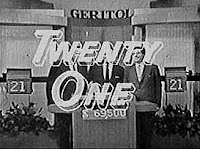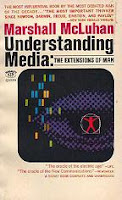Television & Poker; or, the Search for a Happy Medium
 Busy weekend, a lot of it spent in the car. Have been trying to visit various family and friends before my summer in Vegas. I’ll be leaving in just under two weeks to go help PokerNews cover the World Series of Poker.
Busy weekend, a lot of it spent in the car. Have been trying to visit various family and friends before my summer in Vegas. I’ll be leaving in just under two weeks to go help PokerNews cover the World Series of Poker. Had the iPod-like device with me and ran through all of the several podcasts I had recently downloaded, many of which concerned the much-discussed decision by ESPN and Harrah’s to move the final table of the WSOP Main Event to November. Heard WSOP Commish Jeffrey Pollack interviewed on a few of the shows. Some were recorded prior to the announcement, such as the April 7 episode of WSOP Radio (posted April 8). In those Pollack remains reticent when asked about the “rumor” of a possible change. Others were recorded afterwards, such as the May 1 episode of Keep Flopping Aces in which Pollack jubilantly echoes all of the points he’d made earlier in the day during the WSOP presser.
Over on Wise Hand Poker, Gary Wise interviewed recently-hired WSOP Communications Director Seth Polanski (on his May 7 show). I’d heard Polanski on another Rounder’s Radio show back on April 2nd (Pumped on Poker), at which time he didn’t even hint at the possibility of the change. Polanski’s resumé includes performing similar roles for the NFL Network and Fox Sports. On Wise’s show, he explained he thought one of the reasons why he had been hired a couple of months ago by the WSOP was to help facilitate this very move, so he obviously knew something back in early April.
After his interview with Polanski, Wise spoke briefly about why he was in favor of the change. Wise referenced the recent decline in popularity of poker on television and how it suggests “the poker boom as passed.” Linking falling TV ratings to the game’s overall health, Wise stated that “the only way to sustain the growth of the community . . . is to keep poker as a televisable entity popular.”
Wise then mentioned the history of televised game shows, and how the most popular of them -- his examples included Twenty One and Who Wants to Be A Millionaire? -- were often short-lived, having too quickly exhausted their appeal. He pointed out how Twenty One was so popular (in the late 1950s), attendance at baseball games went down on those nights when it aired. However, theorized Wise, the “adrenaline rush” of the show quickly wore off. “Within two years of that kind of popularity, Twenty One was off the air, and without some serious adjustment, televised poker was facing the same kind of fate. That’s why a change is needed.”
 Wise’s example here wasn’t the best chosen. Twenty One was not cancelled because of poor ratings. In fact, when it first aired in September 1956, it was not a hit initially. Only after the producers began manipulating the results (apparently at the insistence of the show’s advertiser, Geritol) and started feeding contestants answers and “scripting” a more exciting drama, did the show become a cultural phenomena worthy of the cover of Time. When an unhappy contestant who had been made to lose came forward with allegations of impropriety, a federal investigation ensued, and Twenty One was unceremoniously yanked from the airwaves in October 1958. (The scandal was dramatized with some embellishment in the 1994 film Quiz Show.)
Wise’s example here wasn’t the best chosen. Twenty One was not cancelled because of poor ratings. In fact, when it first aired in September 1956, it was not a hit initially. Only after the producers began manipulating the results (apparently at the insistence of the show’s advertiser, Geritol) and started feeding contestants answers and “scripting” a more exciting drama, did the show become a cultural phenomena worthy of the cover of Time. When an unhappy contestant who had been made to lose came forward with allegations of impropriety, a federal investigation ensued, and Twenty One was unceremoniously yanked from the airwaves in October 1958. (The scandal was dramatized with some embellishment in the 1994 film Quiz Show.)So the show didn’t fail because people became tired of it. It failed because the game it was depicting had become unacceptably corrupt.
Once I ran out of podcasts, I turned on AM radio (something I rarely do these days). Landed on Sporting News radio, where Dave Harbison was hosting his SNR Pregame show. Apparently he was taking calls on any topic. The first call I heard was about the NHL playoffs. Then the second caller had the following question for Harbison:
“Where do these sports networks come off showing so much poker?”
I’m not making this up. This was just before noon yesterday.
Harbison answered the caller by explaining that the networks need programming, and while he himself didn’t watch poker, enough people apparently did for it to be an acceptable way to fill the time on the sports networks. The caller didn’t like that explanation, and said that since poker didn’t involve athletic ability, he didn’t consider it a sport. “Well, neither does a hot-dog eating contest,” Harbison replied. “But they show that, too.”
 Harbison then offered a brief dissertation on media, in which he actually brought up Marshall McLuhan’s famous argument from Understanding Media (first published in 1964) that the “medium is the message.” Although he glossed over most of the particulars of McLuhan’s thesis, Harbison’s essentially seemed to be applying the idea correctly when he said that when in comes to, say, a network like ESPN, the medium itself is more important than the content. As McLuhan states -- I had to pull out my musty copy of Understanding Media to find the quote -- “it is the medium that shapes and controls the scale and form of human association and action,” even if the “content” may once in while distract us from that fact.
Harbison then offered a brief dissertation on media, in which he actually brought up Marshall McLuhan’s famous argument from Understanding Media (first published in 1964) that the “medium is the message.” Although he glossed over most of the particulars of McLuhan’s thesis, Harbison’s essentially seemed to be applying the idea correctly when he said that when in comes to, say, a network like ESPN, the medium itself is more important than the content. As McLuhan states -- I had to pull out my musty copy of Understanding Media to find the quote -- “it is the medium that shapes and controls the scale and form of human association and action,” even if the “content” may once in while distract us from that fact.After a couple of minutes, I sensed the sports talk show host becoming self-conscious about having unintentionally revealed his theoretical chops. He hastily ended the discussion by referring the caller to McLuhan’s book, then took a call about a recent list of the best baseball parks.
I switched off the radio and meditated a bit on what I’d been hearing. When it comes to televised poker, the decision to move the final table to November clearly indicates the relative importance of the “medium” and the “content.” (For more on this point, see Amy Calistri’s wistful post from yesterday, titled “The Way We Were: Computers and Final Tables.”) And while Wise might’ve picked a different example than Twenty One, his point still makes sense -- and perhaps is even more illustrative of this situation than he intended it to be.
Regardless of the content, the medium -- television -- introduces certain requirements in order to survive -- that is, in order to retain its ability to “shape” or “control the scale and form of human association and action.” I think Wise is correct to say the medium demands a certain element of “novelty” or “innovation” or “change” in order to keep viewers engaged. So the content, while relatively less meaningful in and of itself, must nevertheless be constantly manipulated and repackaged so as to keep the relationship between broadcaster and viewer alive.
Of course, as the example of Twenty One aptly demonstrates, it is possible to manipulate the content too much, corrupting it to the point where it is no longer viable for its given medium. Television audiences (and federal officials) could not tolerate an ethically-ambiguous, “scripted” game show in late 1958. Nor would they, I imagine tolerate similar shenanigans were they to happen with the WSOP. (Let’s all hope this change doesn’t invite anything along those lines.)
Then again, audiences won’t tolerate stasis, either. So those who create television shows have to keep changing the content in order to sustain themselves. I suppose there’s a middle ground in there somewhere, where the content continues to be revisited and altered but not to the point where it is no longer acceptable for its given medium.
One thing’s for sure, though. There’s no way to keep everyone happy.
Labels: *the rumble, Amy Calistri, Gary Wise, Jeffrey Pollack, Marshall McLuhan, WSOP














1 Comments:
Great iinsight from a classic source.
Post a Comment
<< Home